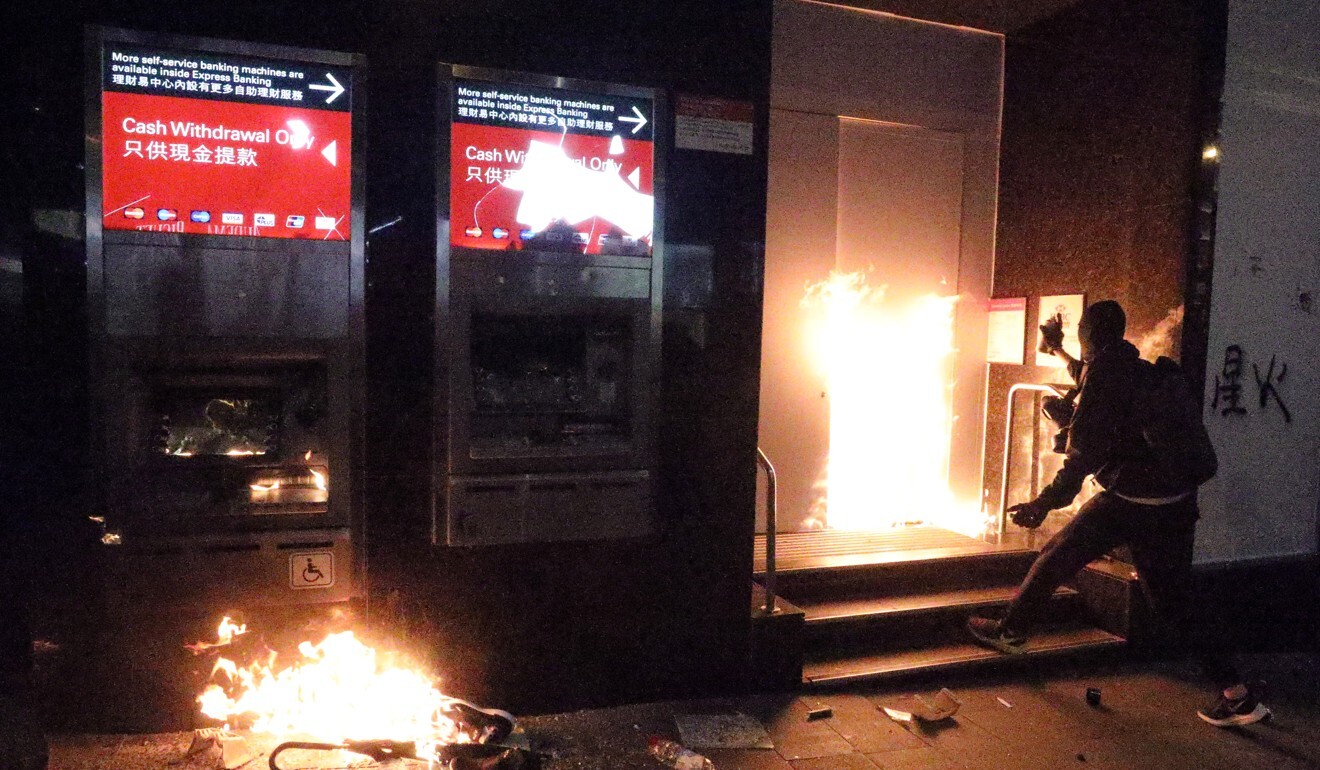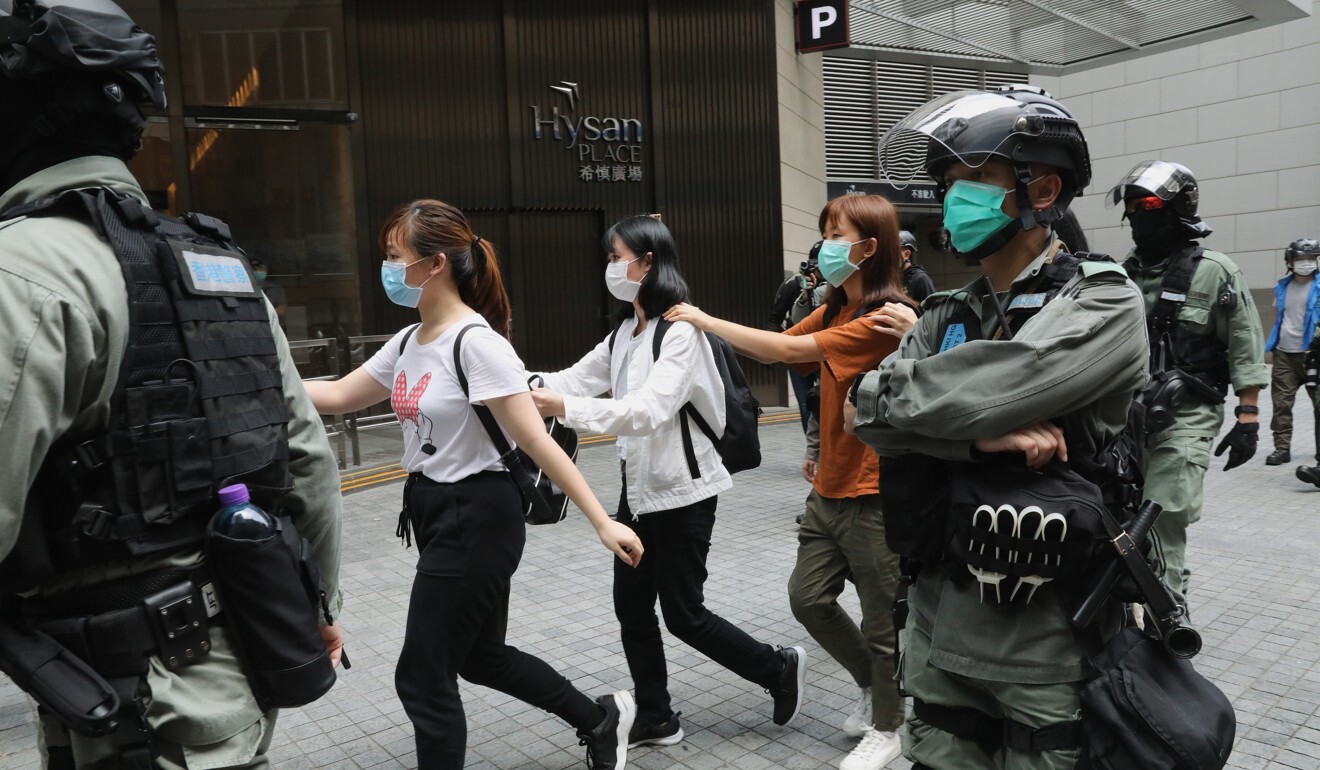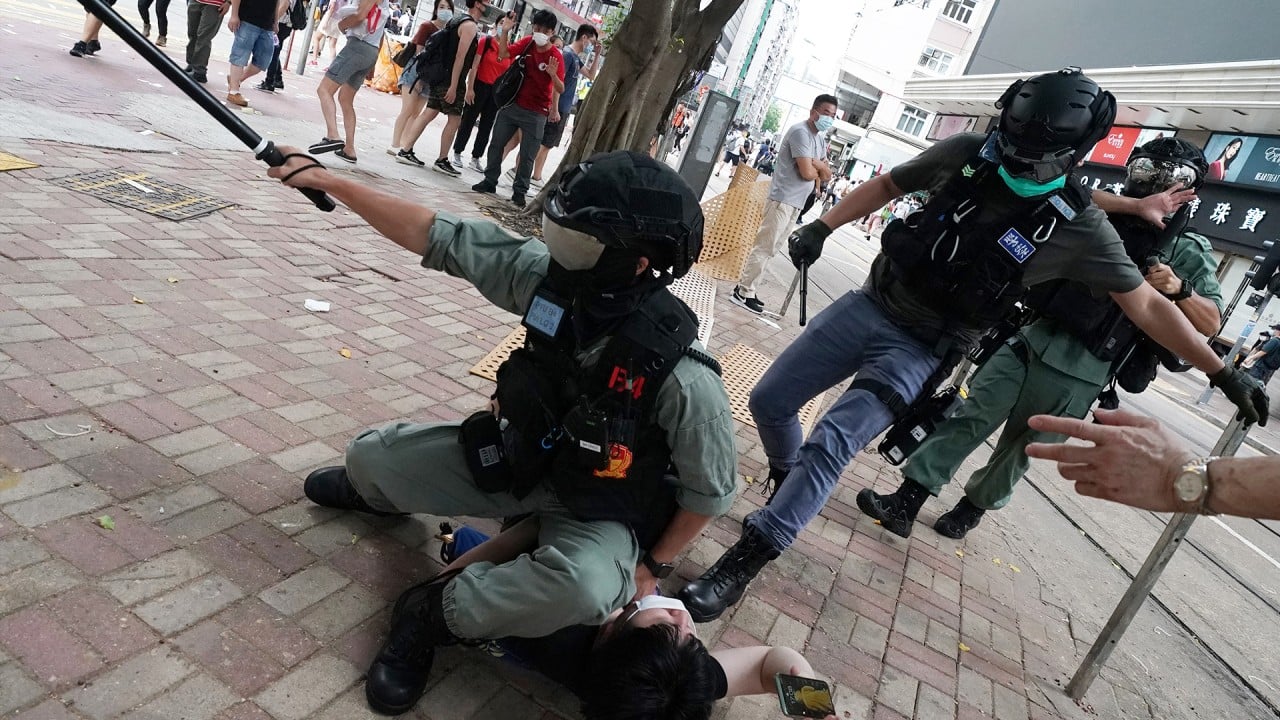
In Hong Kong’s national security law era, echoes of Northern Ireland’s Troubles
- Draconian security laws, identity politics, linguistic divides, violent and non-violent resistance. Sound familiar?
- The strange case of Northern Ireland shows the dangers, and opportunities, that come when a land is subject to different interpretations of its identity
I wondered whether there were any precedents for a country abiding by a treaty relating to its own territory but monitored by outside bodies. I didn’t have to look too far from my home in Britain to find one: the territory of Northern Ireland. And the strange case of sovereignty in Northern Ireland shows the dangers, as well as the opportunities, that come when a patch of land is subject to two very different interpretations of its identity. The case is not exactly parallel with Hong Kong’s. Almost nobody, including most democrats in Hong Kong, denies that the special administrative region (SAR) is an integral part of China and is going to stay that way. But what Hong Kong’s identity means within China is still a highly fluid question, thrown into yet more relief by the passing of the national security law over the past few weeks. That’s where looking at Northern Ireland’s curious history throws up intriguing comparisons.

National security law: does Hong Kong’s Journey to the West have a happy ending?
Northern Ireland became a cauldron of protest, at first non-violent, but bursting into an appalling civil war that killed 3,000 people over 30 years. The London government imposed draconian security laws, including suspension of trial by jury, and internment without trial. You didn’t have to be violent to be arrested; rumours of connections to outlawed groups gained through faulty intelligence were enough. And the most noticeable opposition to British rule turned from being a non-violent civil resistance (which persisted through impressive figures such as the nationalist leader John Hume) to something much more violent and sinister.

Hong Kong’s situation is not the same as Northern Ireland’s; history offers few exact parallels, and, thankfully, violent protest in the SAR is the province of a very small minority. But the Northern Irish case shows that understanding local identity and sensitivities is not incompatible with strong sovereignty. It can reinforce it, when it suggests that the sovereign power is confident and open-minded, rather than suspicious and resentful. Thus far, far too much of the messaging from Beijing and Hong Kong’s leaders has been about the economic benefits of greater integration with China. It’s an important point. But the British government also argued for years that it was bringing prosperity to Northern Ireland. It wasn’t enough in itself.

There needs to be urgent attention to the story that Hong Kong tells to itself, particularly to its young people. The security law is supposed to end “subversion”. So now it’s up to the most senior voices in Hong Kong to show by example that subversion is not the same thing as dissent, criticism of the authorities, or advocacy of political reform, all of which are very much part of Hong Kong’s recent history, including important moments such as the 1925 protests against British rule.
Speaking out is clearly part of Hong Kong’s identity; its press, media and voting record show that. Hong Kong’s leaders must do a great deal more to show not just that they tolerate that part of its identity, but also that they actively celebrate it. Surely it’s time for government-sponsored public debates with open discussions on all aspects of governance and political change? Now that there’s draconian legislation that keeps Beijing happy, the atmosphere is surely ripe for Hong Kong to show that, as its leaders repeatedly argue, it has lost none of its ability to debate, protest and openly criticise. And, of course, those debates should welcome, and indeed require Beijing’s new leaders in the territory to open themselves up for regular scrutiny and rigorous questioning. Similar events took place in Northern Ireland as part of the “peace and reconciliation” process, along with community-based reform of the police service to make it accountable to its citizens. Back-channel discussions on conflict resolution in private between government and its opponents were also crucial; one hopes these are actively going on right now in Hong Kong.

06:50
Hundreds arrested, thousands protest in Hong Kong during first day under new national security law
Northern Ireland also provides an intriguing parallel about the importance of language. The nationalist community wanted more status for the Irish language, a policy mostly opposed by the pro-British unionist majority. As part of the peace process, Irish has been given a much higher status in Northern Ireland. The Cantonese language has become a flashpoint in the politics of division between Hong Kong and the mainland. Make sure that a new educational curriculum explains with nuance and historical depth where its similarities with Mandarin lie, and where they are different. Then, make that explanation part of a much more nuanced understanding of Chinese national identity that celebrates difference and diversity rather than a version of history simply imposed from the capital. Mandarin is dominant in China, anyway; the onus is on the dominant culture to nurture and celebrate the language with a smaller footprint (although Cantonese has some 60 million speakers).
The national security law could turn Hong Kong into Asia’s Monaco
Rana Mitter is Director of the University China Centre at the University of Oxford. His newest book is China’s Good War: How World War II is Shaping a New Nationalism

